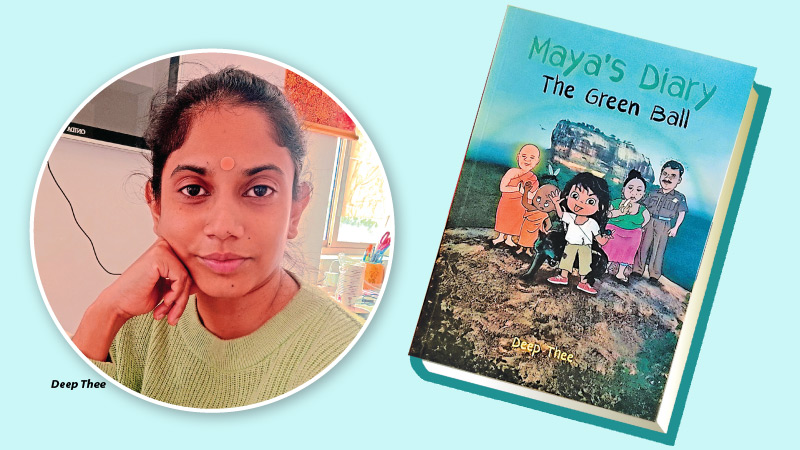Deep Thee burst into the literary scene last year with ‘Maya’s Diary: Green Ball’, which recounts the story of a young girl thrust into the scary world of adults. Deep Thee masterfully narrates the story from Maya’s perspective as she encounters a diverse range of characters in her day-to-day life.
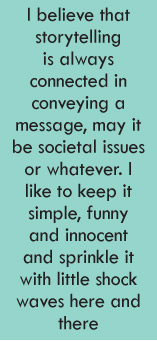 The book was well received by the literati and copies were sold out within days of release. The reception was a testament to Deep Thee’s off-beat style and un-bashful swipes at Sri Lankan society. The author said that the book series will be her service to the country as she tackles the embedded regression which hinders societal progress. As Maya observers the horrors happening around, her innocent diary entries serves as a raw, satire of the adult world which can be best described as ‘mockumentary’.
The book was well received by the literati and copies were sold out within days of release. The reception was a testament to Deep Thee’s off-beat style and un-bashful swipes at Sri Lankan society. The author said that the book series will be her service to the country as she tackles the embedded regression which hinders societal progress. As Maya observers the horrors happening around, her innocent diary entries serves as a raw, satire of the adult world which can be best described as ‘mockumentary’.
Q: Hi Deep Thee! How is Bangalore treating you?
A: Bangalore has been treating me very nice so far. I enjoy exploring a different part of South Asia which is more open minded, progressive and liberal. As Bangalore is also called the “Silicon Valley of India”, you can imagine that this place is a “happening” place.
Q: What inspired you to write “Maya’s Diary” in the form of diary entries?
A: The title itself says that it is a diary, and usually diaries are written on various days in different lengths. I chose the first-person-perspective and diary form because to me it is easier to write. I have tried writing in third-person-perspectives and I totally get lost in it, losing track and not finishing it.
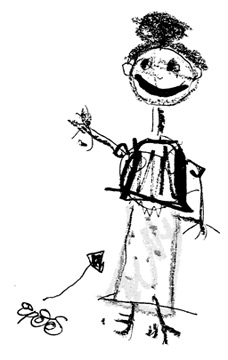 I’m simply not good at it. I myself kept a diary since childhood, therefore I am somewhat familiar with this form. I also like to dive deep into one particular character, here Maya, from where I see and feel everything, therefore this writing form.
I’m simply not good at it. I myself kept a diary since childhood, therefore I am somewhat familiar with this form. I also like to dive deep into one particular character, here Maya, from where I see and feel everything, therefore this writing form.
If I had to write in third-perspective, the writer is the all-knowing author writing from different angles and this gets too complicated for me, especially that I can get easily distracted (I have Attention-Deficit-Disorder, ADD).
I can stay focussed on one character and this gives me ease. I particular chose short diary entries because I feel this matches the character’s age and I also want to reach a broader section of readers, also usually non-readers, and I think these short entries are very easy to read. To sum it up: Easier for me to write and focus, being an easier read and therefore reaching a wider audience.
Q: Your portrayal of Maya as a young protagonist grappling with adult themes and societal injustices is quite unconventional. What led you to choose such a perspective, and what challenges did you encounter in writing from the viewpoint of a five-year-old?
A: I personally don’t think it is that unconventional. We adults tend to think that children don’t understand adult stuff but it is quite the opposite. Children are smarter than we think and they deeply or subconsciously know what we adult mess up with.
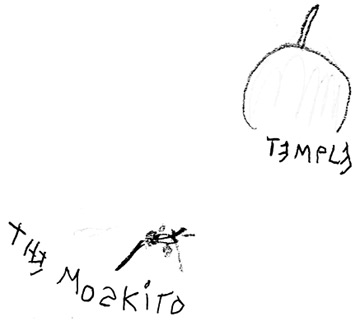 Children ask so many intelligent questions which stay unanswered reflecting the stupidity of adults. I strongly believe that adults are stupid and children are smart, therefore it is time that children explain the world to adults, because adults have messed up big time.
Children ask so many intelligent questions which stay unanswered reflecting the stupidity of adults. I strongly believe that adults are stupid and children are smart, therefore it is time that children explain the world to adults, because adults have messed up big time.
I’m deeply connected to my inner child and Maya is definitely a reflection of it. Most adults have lost this connection to their inner child, and I am hoping that by reading Maya’s Diary, the inner child will be remembered and revoked.
I didn’t feel that I faced challenges in writing from a child’s view. It comes out quite natural out of me. When I write, I become a small child and I even say many sentences out loud in a baby voice during the writing process.
Q: The book tackles sensitive topics such as corruption, crime, and the vulnerability of children in society. How do you navigate the balance between storytelling and addressing these serious issues, especially considering the target audience?
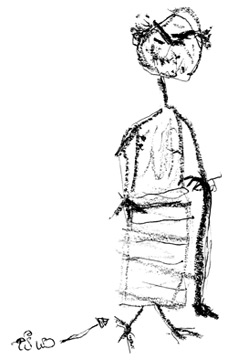 A: I believe that storytelling is always connected in conveying a message, may it be societal issues or whatever. I like to keep it simple, funny and innocent and sprinkle it with little shock waves here and there to wake up the reader. In this “wake up” moment, I put something serious or dirty. Thus I am hoping that the reader really understands what the problem is. I could have written societal issues from an older female perspective, let’s say a woman in her 20’s, but I think that would have become more depressing and boring.
A: I believe that storytelling is always connected in conveying a message, may it be societal issues or whatever. I like to keep it simple, funny and innocent and sprinkle it with little shock waves here and there to wake up the reader. In this “wake up” moment, I put something serious or dirty. Thus I am hoping that the reader really understands what the problem is. I could have written societal issues from an older female perspective, let’s say a woman in her 20’s, but I think that would have become more depressing and boring.
I think adults are not very happy reading books by other adults telling them how bad the world is and how adults have messed up everything. Discovering the world through a child could be a fresh perspective. I have the tendency to shock and provoke people and I am able to do this through Maya.
Maya is innocent and doesn’t know certain things but she observes the adult stuff and describes it in her own childish words and the reader exactly knows what is actually happening combined with feeling embarrassed or shocked, which is my goal.
I think the topics I addressed are important but I don’t want my book being like “preaching” people what is good and what is bad. Adults do preaching. Children do the waking up. Do children preach? No. Do Adults preach? Yes. I don’t want Maya’s Diary to be a preach. I want it to be a wake up slap in your face.
Q: Aunty Chandani serves as a central antagonist in Maya’s story. What inspired her character, and what message do you hope readers take away from her portrayal?
A: One day, I saw an interesting scene on the streets of Colombo 7. The street sweepers were doing their work on Gregory’s Road near the Maha Sambodhi Temple.
One female worker was severely overweight, sunburned and I believe that the mainstream society would call her “ugly”, but I would not want to use that word to judge her looks. Anyway, she was sweeping and scolding in the most filthy Sinhala language one of her male skinny, submissive colleagues. It was quite a picturesque scene as you can imagine. Posh Colombo 7, the temple, the cleaners and the vulgar words.
A beautiful combination where Aunty Chandani’s character was born in my head. The male, skinny, submissive colleague of that lady was the template of the many partners of Aunty Chandani in Maya’s Diary. There is also another woman I know from the south, from the upper middle class, whose husband could not satisfy her, hence she would feed her desires with various other men in the village.
She herself would never admit that and would fake the “good-faithful-wife” and would also expect that from all her siblings and others. Her lustfulness combined with obesity and dominance also flew into Aunty Chandani’s character.
Through Aunty Chandani I want to portray the woman who doesn’t fit into Sri Lankan or patriarchal society. Sex, Drugs and Rock ’n’ Roll will be touched via her, where Maya observes Aunty-Chandani doing and saying certain “things”.
I also want to normalise “un-normal” sex, as well as female sexuality and lust in general. There is no such thing like “unnormal” sex, as long as two adults doing it with consent. Sri Lankan patriarchal society often sees sex to be given by the woman to the man as a duty.
Also, many only know the missionary position, where the man lies on top, it is dark, and it is done quickly (and with shame). Aunty Chandani explores quite a variety of sex and I want to make the reader very uncomfortable. Sex education will be also linked to Aunty Chandani, because as Maya asks her mother questions about Aunty Chandani’s activities, her mother has no other choice than to educate her daughter.
Q: How do you respond to critics who argue that the book may not be suitable for a Sri Lankan audience or could be deemed controversial?
A: If the “Sri Lankan audience” doesn’t want to progress further, or doesn’t want to face its societal issues, and hence saying that Maya’s Diary is not suitable, especially then I am saying that Maya’s Diary is very specially designed for Sri Lankan audience. When a person tells me “oh, this is too open minded for Sri Lanka” then I answer “so, then Maya’s Diary is just perfect for Sri Lanka”. When someone says “Maya is just too controversial”, I answer “Maybe you are too hypocritical and want to hide things which should not be hidden.”
Q: As a dissident author, how do you see your role in challenging societal norms and addressing taboo subjects through literature?
A: As I mentioned above I see my role to wake up the reader and my aim is to convert taboo topics into non-taboo topics. There should not exist such things in society called taboo-topics. It is a shame that we still call them “taboo” and it is just because adults don’t want to be held accountable for their ill-behaviour. My responsibility as an author is to make the non-talkable talkable.
Q: Can you speak to any personal experiences or influences that have shaped your writing style and thematic choices in “Maya’s Diary”?
A: I myself was an amid diary writer since I started to learn to write. My mother gifted me a diary when I was seven years old and she told me I should write a diary because it would help me with my school work.
What it actually did was not necessarily helping my school work (I was anyway good in it) but more or less helping to process life events, tackle mental health as a growing child and teenager as well as developing creativity.
This definitely is the root of Maya’s Diary as Maya uses her diary to deal with life when no one else could help her. Since childhood, I was always critical and curious about everything and I didn’t want to accept adult’s blunt explanations. I always knew that there is much more than just school, study, work and the usual blah.
As I grew up in Germany to Sri Lankan parents, I was raised in a limbo between two cultures, which triggered all these questions about society, history, politics, religion, education etc. and have for sure shaped themes in Maya’s Diary.
Q: What impact do you hope your work will have on readers and the broader cultural conversation, especially when there will be more in Maya’s Diary series?
A: Maya’s Diary is a series of six books and evolves like Harry Potter, as Maya grows older. The first book “The Green Ball” is where Maya is five and ends when she is six. The last page of this diary is her first day at school.
The second book “The Gemstone”, which I am currently writing, is where Maya is in grade one and grade two (age 6 to 8). Some themes repeat themselves but in a more deeper and elaborative way as Maya grows intellectually. New themes are added in each book and one particular topic or incident plays a main role in each book. As an author, I of course want to entertain, educate and slap my readers awake. I also want to make them laugh, cry and cringe.
I want them to question the world and be self-introspective. In a broader way, I hope that Maya could have an impact on society that these highly needed conversations start to be more common and open. I wish that Maya could become a voice for those (especially children’s voices) whose voices have been oppressed.
I wish that Maya will become a role model for girls, by getting away of this colonial narrative of girls liking pink princesses waiting for the prince to rescue them and marry. What nonsense! I secretly hope that Maya’s Diary will become a series of movies too.






